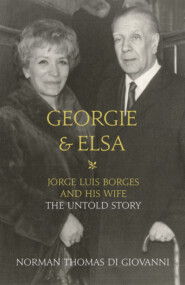По всем вопросам обращайтесь на: info@litportal.ru
(©) 2003-2025.
✖
The Silenced
Автор
Год написания книги
2019
Настройки чтения
Размер шрифта
Высота строк
Поля
“You don’t believe in all that, then?” Julia said. “It already works that way in a ton of other countries. The police need more effective tools against organized crime; you have to admit that, surely?”
Amante shrugged his shoulders. “It doesn’t really matter what I think. But people are saying that the Bar Association is likely to try to stop a number of the proposals. And if the opposition wins the election this autumn—”
Amante broke off abruptly. He blushed slightly, as if he’d suddenly realized he was talking too much. Julia put her foot down and changed lanes again, gaining a few more places in the queue. The maneuver made Amante grab hold of the handle above the passenger door. Julia smiled to herself. Just wait until we get the lights and sirens on. But that presupposed he’d be sticking around, which she doubted. Amante clearly wasn’t an expert in either violent crime or murder investigations, and didn’t seem remotely interested in the subject. He must have been recruited to the unit for some other reason. Because someone wanted or needed him there. Superintendent Pärson was a keen adherent to the path of least resistance. Everyone knew that the fat little bastard supplemented his horse-racing pot by tipping off the evening tabloids about ongoing investigations at advantageous moments. Yet no one was ever able to catch him. He knew exactly how often he needed to change his pay-as-you-go cell phone and Western Union account. And, perhaps most importantly of all, which people to stay on the good side of: whom he ought to do favors for, and when.
She glanced surreptitiously at Amante as they approached the heavy gates leading down into the garage of Police Headquarters at Kronoberg. She couldn’t quite make sense of the rhythm she had picked up from him so far. His age was difficult to determine; she guessed at thirty-five or so. But he spoke in a rather stilted way, like someone considerably older, more like a politician than a cop. And the way he dressed was something else. A blue blazer with the gilded emblem of the Royal Swedish Yacht Club on top of a coral-colored sweater with a designer logo, just frayed enough at the collar to suggest that its owner had worn it when he sailed around Gotland. Pale slacks with a neat crease and hand-sewn boating shoes. But in place of the slicked-back, sun-bleached hair that would have matched his well-to-do summer wardrobe perfectly, Amante’s dark hair was cut short. And he didn’t have a salt-splashed suntan from Båstad or Sandhamn with lighter patches left by his sunglasses either. Amante’s skin was swarthy, like someone from southern Europe. Or even farther south. His whole rhythm was full of contradictions, a syncopated beat that was hard to follow.
“Your surname,” she said. “Is it Italian?”
“Spanish,” he replied, slightly too quickly.
An image flashed through her mind. Something on the news, a row of smartly dressed EU politicians, something about the legal system. An articulate man making critical remarks about the government and minister of justice.
“Victor Amante. The EU politician?” She guessed the answer as she saw her new colleague squirm uncomfortably in his seat.
“He’s my stepfather.”
* * *
The quiet knock made Sarac slip the bag of pills under his pillow in a flash. It was designated rest time, so no one should be disturbing him now. Had the staff begun to suspect something after all? But a search team would hardly knock and wait politely to be let in before they turned his room upside down.
“Come in,” he said as calmly as he could. He leaned back against the pillow so that the bag of pills ended up behind his back. Damn, he should have slipped the bag back into the gap he had carved out behind one of the baseboards instead of hiding it in the first place he thought of like a startled five-year-old.
One of the caregivers, a man in his late twenties whose name Sarac thought might be Eskil, came into the room. Sarac noted that he closed the door behind him in a different way from usual. Carefully, as if he were trying to be as quiet as possible. Whatever Eskil was doing there, it definitely wasn’t a search.
“Hello, David.” The nurse glanced at the closed door, then put his hand in the pocket of his uniform tunic and held out a small white envelope. “For you.”
Sarac frowned.
“Who from?” he said, without taking the envelope.
“The guy said his name was Frank.”
“Surname?”
“He didn’t say. Just that you were colleagues of some sort. That he’d been looking for you last Christmas but didn’t manage to find you.”
Sarac closed his eyes for a few seconds, searching his broken mind for an image that matched the name. He didn’t succeed.
“What did he look like?”
“Dark hair, short, bit like a cop.”
“Height, build? Other distinguishing features? You must be able to remember something?”
Eskil shrugged his shoulders. “I don’t know. Normal height, normal build. Looked a bit like you, but not as skinny.”
“And where did you meet this Frank?”
Eskil looked like he was getting fed up with all the questions. Instead of answering, he held the envelope out a bit farther. Waved it gently in front of Sarac’s nose.
Sarac didn’t move. He was trying to work out if the nurse’s nervousness was because he had been threatened into doing this, or because he was used to taking bribes and didn’t want to get caught.
“Just take it, for God’s sake.” Eskil glanced over his shoulder again as if expecting someone to throw the door open at any moment. So he’d been bribed, then.
Sarac still didn’t move. Could this be some sort of trap? Were they trying to trick him? Find out what he was planning to do? The distant rumble of his nightmares was suddenly back in his head. He put his hands over his ears and shut his eyes tight.
Eskil gave up his attempts to hand the letter over and tossed it onto the bed next to Sarac before heading for the door.
“I’ll look in again in an hour in case you want to send a reply. Don’t tell anyone, okay?”
“Sure,” Sarac mumbled. “Actually, hang on …”
But before he had time to say more, the nurse had left the room. Sarac quickly put his hand under the pillow. The feeling of the plastic against his fingertips was strangely reassuring. It made the roar in his head subside.
The letter was lying on his bed, beside his left foot. He could read his own name in Times New Roman on the front. Detective Inspector David Sarac; nothing else. Unless there was something on the back. He picked the envelope up, turned it over, and held it up to the light. The back was blank, the envelope smooth and flat. It couldn’t really contain anything but a sheet or two of paper.
He hadn’t had any visitors for a long time, no contact with the outside world except for TV and the Internet. Perhaps Frank was yet another reporter trying to arrange an interview with him, an unusually creative one who was willing to bribe a staff member.
He slowly opened the envelope with his forefinger and pulled out a folded sheet of paper. At the top was a message in the same impersonal font as the envelope. Four lines, seven sentences, forty-six words. More than enough to make his heart beat faster.
He betrayed you, David. Swapped his future for you and Janus. Then he moved on while we bled and died out there on the island. No punishment, no consequences, straight to the top. How about a swap? Your secret for mine? A chance to get justice.
Sarac unfolded the bottom part of the sheet of paper. Two photos fell out onto the bed, landing upside down.
He turned the first one over. Husband, wife, two teenage girls dressed up for some sort of premiere. A good-looking, happy family smiling assuredly toward the photographer with perfect, dazzling media smiles.
His heart beat even faster. Spread out from his chest and up into his throat. He turned the second photograph over. Felt his hand tremble. He swallowed hard a couple of times.
The dead blonde woman was lying on her stomach across the black hood of a car. The pool of blood formed a sort of aura around her naked body. The force of her descent had been so strong that it almost welded her body to the expensive car. Transforming it into a single horrifying sculpture of skin, glass, and metal.
* * *
“The dismembered body at Källstavik: What do we know?”
The waitress had barely put their plates down on the checkered cloth and walked off before Deputy Police Commissioner Oscar Wallin revealed the purpose of their meeting. Julia couldn’t help smiling. Wallin hadn’t changed. Straight to the point, no unnecessary beating around the bush. Just like her. That morning he had suddenly called after months of silence. Now she understood why. Or at least what he wanted to talk about.
“Aren’t you going to ask me how I am or what I’ve been doing for the past six months?” Julia smiled, but Wallin’s expression didn’t change. “Anyway, you didn’t have to ask me to lunch. Most of it’s already been in the papers.”
That was more accurate than she would have liked. No more than a couple of days had passed since her visit to the Forensic Medicine Unit, but the public already knew almost as much as she did. The evening tabloids loved summer murders, and their reporting followed the usual pattern. Yesterday there had been a few grainy pictures of police boats and divers, and a map covering the whole centerfold. Where the body parts were found. Quotes from a source with inside knowledge of the investigation, obviously her own boss, and today she had just read the assortment of speculation and confident assertions from the usual academic detectives who had never seen a dead body in real life.
This could be connected to the criminal underworld. Statistically, the killer is likely to have been known to the victim, and her personal favorite: Dismemberment is a way for the killer to get rid of the body.
Wallin put what looked like a perfectly judged mix of beef patty, potato, sauce, and lingonberry preserve in his mouth. He chewed slowly as he raised his eyebrows quizzically.
“The victim, according to the latest we’ve got from the pathologist, is a white male between thirty-five and forty-five,” Julia said. “Just over one meter eighty centimeters tall, with short, dark brown hair. We may need to take that last bit with a pinch of salt. The crayfish didn’t leave much of his scalp.”
She fell silent. Wallin went on chewing, as implacable as ever. If the malicious rumors about his career contained any truth at all, there certainly wasn’t any sign of it in his behavior or appearance. His boyish features, emphasized by his perfectly combed side parting, formed such an abrupt contrast to his tailor-made three-piece suit that it almost jarred. He looked like a boy dressed up as a grown man, he always had. Previously only the most deranged of his colleagues had made fun of that. Only in recent months had she heard his nickname spoken out loud in the corridors of Police Headquarters. Even by some of her superiors.











